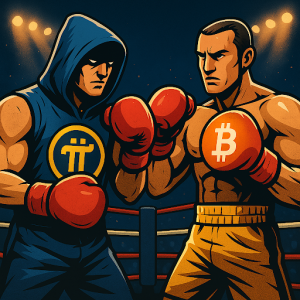Anupika Khare looks at the ins and outs of the sub-culture of online gaming
The video game space has exploded as billions worldwide were forced to stay home in 2020 with limited options to occupy their spare time. The online gaming industry in India is only a decade old but the business is in a boom.
According to Statistica, India recorded about 390 million online gamers in 2021. This was a 8 per cent growth from the previous year and is predicted to reach over 450 million by 2023. About 95 million gamers paid for online games that year.
History of Gaming
Before the advent of the internet, and after personal computers, mobile phones, or smartphones became omnipresent, some students of prestigious institutes like MIT would sneak into computer labs and learn to program.
They developed the first simple games like Pong. These were initially monetized as arcade games. Next came games like Space Invaders, the first shooter, and Tetris.

It is no secret that millennials grew up playing Mario and Tetris games. Japanese video game designer Shigeru Miyamoto created Mario. Mario is the title character and mascot of Nintendo, the Japanese video game company. Over 200 video games have featured Mario since he was created. In the lands of the Mushroom Kingdom, Mario’s adventures center on rescuing Princess Peach.

Almost two-thirds of American adults play online video games. Even though gaming can be fun and even a competitive sport, it still poses certain health risks.
Pros of Gaming
But, before we get into the harms of gaming, let us explore some of the benefits.
Aside from being a fun distraction and a terrific way to give your mind a break, it also helps people to connect with others via a virtual community. In today’s day and age, when most of us are busy with our day-to-day jobs, it is an excellent way to kill the loneliness and connect with others with similar interests.
According to a report by Harvard Medical School, online gaming has benefited autistic kids, who can have challenges with traditional modes of communication.
There is also some evidence that gaming can improve attention and spatial reasoning, according to other studies. It is unclear, however, how far these benefits extend beyond video games.
In addition, video games have medical applications, such as improving balance in people with degenerative diseases, helping children with ADHD improve their thinking skills or training surgeons for technically challenging procedures.
Cons of Gaming
In 2018, the WHO talked about Gaming Disorder, a behavior characterized by impaired control over gaming activity. Gaming Disorder resulted from the increasing priority given to gaming over other activities to the extent that gaming takes precedence over other interests and daily activities, despite the negative consequences.
Online gaming can cause continuous strain injuries, skin disorders, and other health problems. There are issues to be listed, from video game-provoked seizures in patients with pre-existing epilepsy to vision issues.
Gamer’s thumb
‘Gamer’s thumb’ is caused by inflammation of the tendons that move the thumb. It was known as PlayStation thumb earlier. The medical term is de Quervain’s tenosynovitis, which can lead to swelling and limited movement.
Obesity
Gaming is also considered to trigger obesity in teens. According to a Journal of Clinical Nutrition study, “a single session of video game play in healthy male adolescents is associated with an increased food intake, regardless of appetite sensations.”
Vision problems
Gamers often complain about vision problems. The most common vision problem is eye strain, which can result in headaches and lack of concentration.
Seizures
Gaming has been reported to result in seizures, leading to warnings on the packaging.
Gaming addiction
Gaming has also been associated with psychological problems. According to the American Psychological Association, Internet Gaming Disorder is defined as experiencing at least five of the following nine criteria over 12 months.
- Gaming preoccupation
- Withdrawal
- Tolerance
- Loss of interest in other activities
- Downplaying use
- Loss of a relationship, education, or career opportunities
- Gaming to escape or relieve anxiety, guilt, or other negative mood states
- Failure to control
- Continued gaming despite psychosocial problems.
Cyber Attacks on Kids
Engage with your child frequently about the game and who they are playing with. Some weirdos will inevitably try to contact children online and take things to dangerous levels. No matter where you are, taking these dangers seriously should always be a priority.
Life-threatening Online Games
Online games can sometimes be dangerous and life-threatening for your children, so it is vital to keep them away from such games.
For example, an online game called Blue Whale suicide game asked children and teens to take on a series of challenges that ended with them eventually killing themselves.

The suicide game demanded players to complete bizarre tasks over 50 days. It account for hundreds of teen suicides worldwide, particularly in Russia. A 21-year-old Russian Philipp Budeikin, was arrested for allegedly being the mastermind behind the game.
Playing online games can be fun when integrated into a healthy lifestyle. Play games but do not get addicted.
In case you missed:
- None Found









